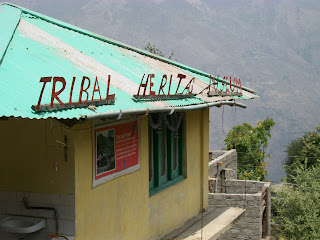


Rock edicts of Dhauli narrate the story of grisly combat between Ashoka and Kalinga. The place is witness to emperor Ashoka's penitence after his violent crusade in Kalinga, and his eventual transformation after embracing Buddhism.
The impressive edicts dating back to the 3rd century BC are beautifully preserved. The rock edicts of Dhauli are a peculiar blend of tranquil milieu and magnificent artworks of bygone era. Each edict is a perceptive rendering of outstanding Buddhist convention.
On the top of rock edicts, a carved elephant which is the worldwide emblem of Lord Buddha is beautifully placed. The prominent rock edicts of Dhauli include an elephant convoy, the sprawling Buddha, footsteps of Buddha demeanor the wheel (Chakra), a quiescent beauty admired by female entourages, the Bodhi tree, procession on back of horse and monarch Ashoka forsaking confrontation by presenting his rapier to Lord Buddha at Dhaulagiri Knoll.
The Kalinga edicts gracefully display welfare of the entire world. The sculpture of elephant located on the top of edicts is one of the oldest rock edicts of Dhauli. According to the folklores, elephants are said to represent the followers of Buddha on earth. Dhauli is a prominent centre of numerous Buddhist activities. Several stupas, chaityas and pilasters constructed by Emperor Ashoka in the bygone era add charm to the rock edicts of Dhauli. He also built abodes for hermits, emblazoned directives for bureaucrats, illustrated the major standards of Dandaniti and gave exceptional position to his new realm encompassing stupas at Dhauli.
For more information log on(http://www.indfy.com/orissa-india/orissa-attractions/rock-edicts-of-dhauli.html)
















































